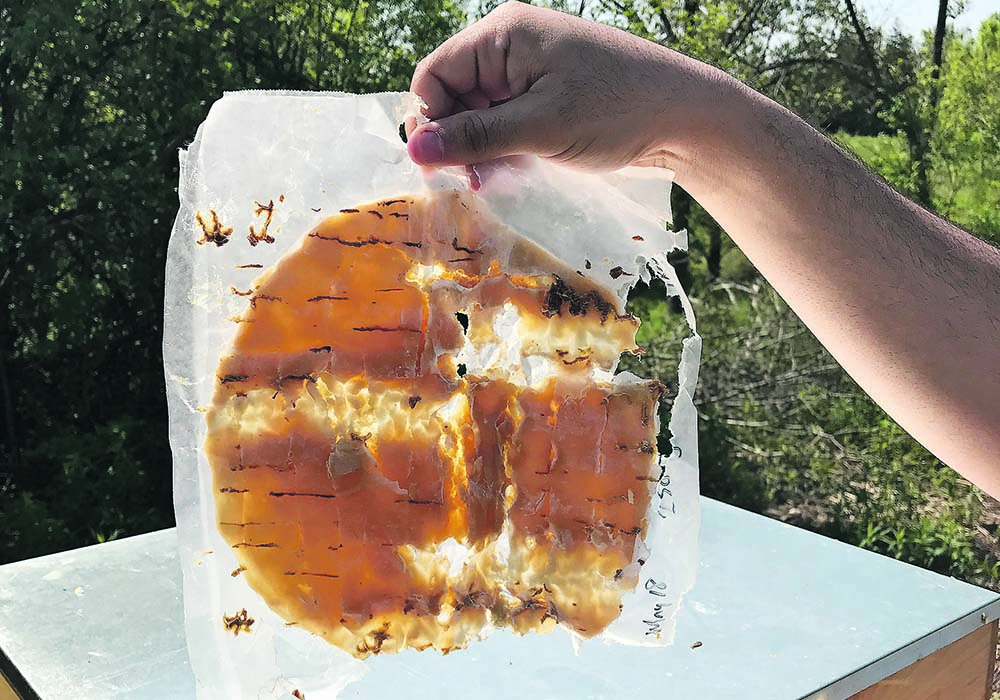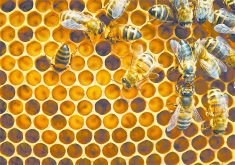Field studies at Western University have shown health improvements throughout the hive where probiotics are present
Research from Western University in London, Ont., is exploring the use of probiotics to improve overall gut and immune health in bees.
Graham Thompson, professor of biology at Western University, has since 2018 studied probiotics as a way to boost bee health.
“Now my own research program has shifted to incorporate more and more research into honeybee gut microbes,” Thompson said.
A few probiotic bee supplements are available on the market, but there is little science to back them up.
Thompson said he doesn’t “knock” these products, but the Western University study puts science first.
Read Also

Beef cattle more prone to trace mineral deficiencies
The trace mineral status of our cows and calves is a significant challenge for western Canadian producers and veterinarians.
“Bees, like humans and other things, have actually co-evolved with a lot of bacteria that they depend on. The bacteria live in the bees’ guts quite naturally and it’s not bad,” said Thompson.
The general group of bacteria, lactobacilli, are useful to help break down the food an organism eats as it passes through the intestines.
The probiotic strains Thompson’s team selected for the studies have been purposefully selected from previous DNA gut analysis, which identified the core bacteria species common in most bees.
With collaboration with microbiologists, Thompson has identified which probiotics would best support these core bacteria in the bees’ gut microbiome.
“We call it lactobacilli times three, or LX3,” he said, which refers to the combination of all three bacterial strains.
Thompson’s research team used protein patties, part of basic hive upkeep, as a medium to get beneficial bacteria into the bees, dubbing it the bio patty.
Probiotics can also be administered through a spray. By misting bee frames with liquid containing lactic bacteria, “you’re applying the probiotics topically to the outside of the bee’s bodies in that case, as opposed to delivering it directly to their guts through feed,” Thompson said.
When a bee is covered with a foreign substance, other bees groom and clean it and ingest the probiotics from their hive mate.
DNA sequencing carried out on bee gut contents shows that although the ingested probiotics may not stay in the gut for long, they help support the core microbiome while they are there.
So far, field studies have shown health improvements throughout the hive where probiotics are present. The levels of spores that cause American foulbrood and the presence of varroa mites have been much lower in hives that have had probiotic treatments than in hives that have had no supplements.
“The queens of probiotic-treated colonies tend to lay more eggs,” Thompson added.
“There is another, more direct connection that people have speculated (about) and it’s called, particularly in human biology, the brain-gut axis or BGA,” Thompson said.
Using the circulatory, nutritional and immune systems, the brain of the organism seems to keep tabs on the gut and can adjust what is consumed.
Thompson said he feels there is much more to learn. He wants to offer a scientific-based product for beekeepers, and he’d like to delve more into the wider impact of probiotics, not just at the individual bee level but for the health of whole hives.
Collaborations with the Niagara College of Applied Arts and Technology and universities in the United States have allowed for field studies to be carried out in diverse climate conditions.
This may help study climate resiliency of probiotic-treated bee hives.
“Environmental stress, like maybe exposure to pesticides or exposure to extreme or variable weather or to dehydration or to bland and monoculture food sources, and to see if probiotics can help them in those ways, (could be possibilities for future studies),” Thompson said.















